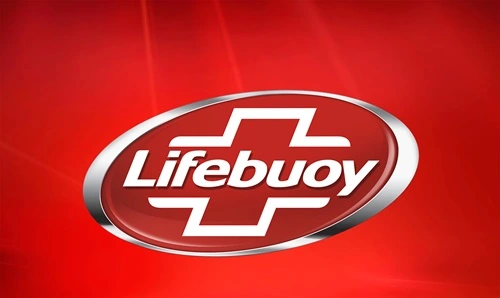Lifebuoy, a flagship brand under Unilever, was launched in 1894 with the vision of promoting hygiene through affordable and effective products. Initially known for its red carbolic soap, Lifebuoy has evolved into a multi-product brand offering soaps, handwashes, body washes, and sanitizers. As one of the world’s most recognized hygiene brands, Lifebuoy has consistently emphasized health, cleanliness, and germ protection. In 2024, the brand faces opportunities and challenges as the demand for hygiene products grows alongside shifts in consumer preferences.

Current Overview of the Lifebuoy Company:
Lifebuoy remains one of the most trusted brands, especially in developing markets like India and Southeast Asia, where it enjoys strong consumer loyalty. Lifebuoy’s product range extends beyond soap to include hand sanitizers, hand washes, and body washes. The brand has a significant presence in rural markets, where affordability and accessibility are paramount. Its positioning as a germ-fighting solution is particularly relevant in a post-pandemic world, where consumers are more aware of the importance of hygiene. However, Lifebuoy still faces stiff competition from global and local brands such as Dettol and Savlon, and it struggles to penetrate urban markets where it is perceived as a lower-end product.
Strengths:
1. Strong Brand Equity: Lifebuoy’s long-standing presence and its emphasis on health and hygiene have cultivated deep trust among consumers. Its association with germ protection has been critical in building consumer confidence.
2. Affordable Pricing: Lifebuoy offers competitively priced products that appeal to a broad demographic, particularly in emerging markets. Its affordability makes it accessible to low-income households, especially in rural areas.
3. Wide Distribution Network: The brand’s robust global distribution network ensures that its products are available even in remote regions, making it a market leader in rural markets across countries like India.
4. Diverse Product Portfolio: Over the years, Lifebuoy has expanded its product range, including hand washes, body washes, and hand sanitizers, allowing it to cater to various consumer needs and expand revenue streams.
5. Socially Impactful Campaigns: Lifebuoy has run effective health awareness campaigns, such as “Hath Dhoye Kya?” in India, which focuses on promoting handwashing for disease prevention. These campaigns help build the brand’s reputation as a socially responsible company.
Weaknesses:
1. Perception as a Low-End Product: Despite efforts to reposition itself as a family brand, Lifebuoy continues to be seen primarily as a lower-tier, male-centric product. This perception limits its appeal, particularly in urban markets where consumers may prefer premium beauty and hygiene products.
2. Limited Popularity in Urban Markets: Lifebuoy’s association with affordability and its focus on rural markets have hindered its penetration in urban areas, where premium hygiene brands like Dettol and Lux are more popular.
3. Competition from Herbal and Organic Brands: As consumer preference shifts towards natural and organic products, Lifebuoy’s chemical-based formulations may struggle to compete in the growing market for herbal and eco-friendly alternatives.
Opportunities:
1. Growing Health Awareness: With global consumers becoming increasingly health-conscious, Lifebuoy’s germ protection promise offers significant growth potential. The brand can capitalize on the increased focus on hygiene, especially post-pandemic.
2. Expansion in Emerging Markets: As disposable incomes rise in emerging economies, Lifebuoy has the opportunity to further expand its market share by offering tailored products for these regions. The demand for affordable hygiene solutions in countries like India and Africa continues to grow.
3. Product Innovation and Sustainability: Lifebuoy can explore the development of herbal and eco-friendly product lines to attract environmentally conscious consumers. Sustainable packaging and formulations will not only meet regulatory demands but also align with global sustainability trends.
4. Digital Transformation: Lifebuoy can further leverage e-commerce platforms to enhance its digital presence, especially in urban markets where online shopping is growing rapidly. By investing in digital marketing and consumer engagement, the brand can expand its reach.
Threats:
1. Intense Competition: Lifebuoy faces stiff competition from both global (e.g., Dettol, Savlon) and local brands offering similar levels of germ protection. This intense rivalry could erode its market share if the brand fails to innovate.
2. Shifts in Consumer Preferences: With the increasing demand for natural, chemical-free products, Lifebuoy’s existing formulations may struggle to retain consumers who prefer herbal and organic alternatives. The brand needs to adapt quickly to these changing preferences.
3. Intra-Brand Competition: Being part of Unilever’s portfolio, Lifebuoy competes with other Unilever brands like Lux and Dove. This internal competition can lead to market cannibalization, particularly in the hygiene and personal care segments.
Future Plans:
Looking ahead, Lifebuoy aims to strengthen its presence in urban markets by enhancing its brand image through premium product offerings. The company is also focusing on expanding its digital footprint, investing in e-commerce platforms, and using targeted marketing to reach a younger, urban audience. Furthermore, Lifebuoy plans to continue its successful social awareness campaigns and explore more sustainable product lines to align with global environmental trends. Innovations in product formulations, such as introducing herbal and eco-friendly options, will be key to capturing a broader market segment.
Conclusion:
Lifebuoy remains a trusted brand with a strong legacy in promoting hygiene and health. Its affordable pricing, broad distribution, and impactful social campaigns have helped it dominate rural markets. However, the brand faces challenges in urban penetration, consumer perception, and competition from herbal and premium brands. By embracing innovation, focusing on sustainability, and leveraging its strength in health awareness, Lifebuoy can continue to grow and adapt to the evolving market demands in 2024 and beyond